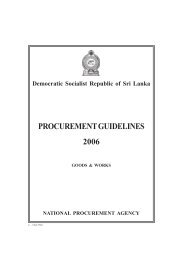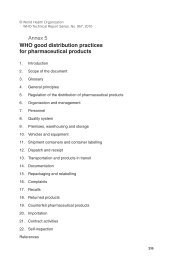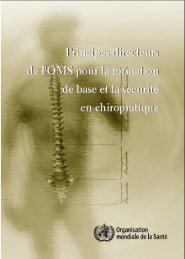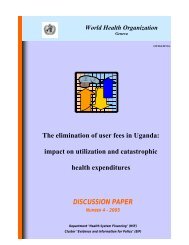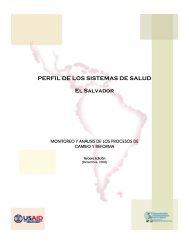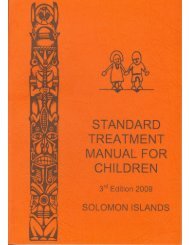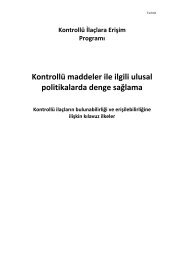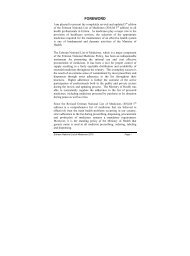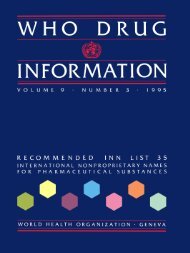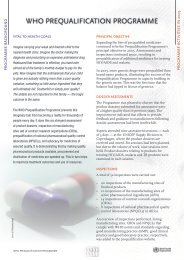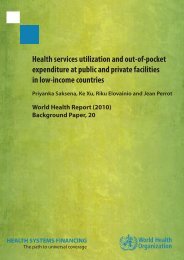WHO Drug Information Vol. 25, No. 2, 2011
WHO Drug Information Vol. 25, No. 2, 2011
WHO Drug Information Vol. 25, No. 2, 2011
You also want an ePaper? Increase the reach of your titles
YUMPU automatically turns print PDFs into web optimized ePapers that Google loves.
<strong>WHO</strong> <strong>Drug</strong> <strong>Information</strong> <strong>Vol</strong>. <strong>25</strong>, <strong>No</strong>. 2, <strong>2011</strong>Consultation DocumentsAll requirements for these specialized dosage forms are given in the individual monographs.Delayed-release capsules (gastro-resistant/enteric capsules)DefinitionDelayed-release capsules are hard or soft capsules prepared in such a manner thateither the shell or the contents resist the action of gastric fluid but release the activeingredient(s) in the presence of intestinal fluid.ManufactureThe additional statements given under either hard or soft capsules apply, as appropriateto delayed-release capsules.Disintegration testDelayed-release capsules with a gastro-resistant shell comply with 5.3 Disintegrationtest for tablets and capsules, using hydrochloric acid (0.1 mol/l) VS as the immersionfluid. Operate the apparatus without the discs for 2 hours, unless otherwise specified inthe individual monograph (but in any case for not less than 1 hour), and examine thestate of the capsules. <strong>No</strong> capsule should show signs of disintegration or rupturepermitting the contents to escape. Replace the acid by phosphate buffer solution, pH6.8, TS with added pancreatin R where specified in the individual monograph. Add adisc to each tube. Operate the apparatus for 60 minutes and examine the state of thecapsules. If the capsules fail to comply because of adherence to the discs, the resultsare invalid. Repeat the test on a further 6 capsules omitting the discs.For capsules in which the contents, rather than the shell, resist the action of gastricfluid, carry out a suitable dissolution test to demonstrate the appropriate release of theactive substance(s).Revision of monograph on tabletsThis monograph was adopted by the Forty-fourth <strong>WHO</strong> Expert Committee on Specificationsfor Pharmaceutical Preparations in October 2009 for addition to The InternationalPharmacopoeia.TabletsThe requirements of this monograph do not necessarily apply to preparations that areintended for use other than by oral administration, such as implants, solution-tabletsfor injections and irrigations, tablets for external use, vaginal tablets, etc. Such preparationsmay require a special formulation, method of manufacture, or form of presentation,appropriate to their particular use.DefinitionTablets are solid dosage forms usually obtained by single or multiple compression ofpowders or granules. In certain cases tablets may be obtained by moulding or extrusiontechniques. They are uncoated or coated.139



